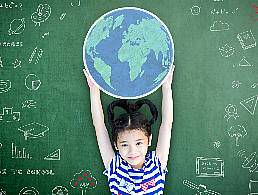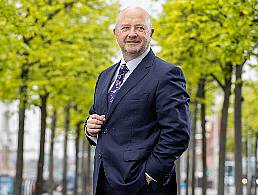The World Economic Forum has warned that the ideal of gender equality in the workplace will not happen during our lifetime. Ireland has dropped from 5th to 6th place among the world’s most gender-equal societies.
The World Economic Forum’s (WEF) Global Gender Gap Report 2016 suggests that economic parity between the sexes could take 170 years, following a dramatic slowdown in progress.
The situation is set to be exacerbated with the onset of the fourth industrial revolution, where the ensuing technological disruption could hit women the hardest due to a hollowing out of female roles.
‘Women and men must be equal partners in managing the challenges our world faces – and in reaping the opportunities’
– KLAUS SCHWAB
The WEF attributes the dangerous slowdown to chronic imbalances in salaries and labour force participation. This is despite the fact that in 95 countries, women attend university in equal or higher numbers than men.
“These forecasts are not foregone conclusions,” said Saadia Zahidi, head of education, gender and work, and member of the Executive Committee at the WEF.
“Instead, they reflect the current state of progress, and serve as a call to action to policy-makers and other stakeholders to double down on efforts to accelerate gender equality.”
A dangerous misuse of talent
The WEF warns that the world is facing an acute misuse of talent by not acting faster to tackle gender equality, which could put economic growth at risk and deprive economies of the opportunity to develop.
Nordic nations continue to rank among the highest performing countries, but several developing and emerging markets have also made it into the top 20. The US falls to 45th.
Iceland ranks number one, followed by Finland, Norway, Sweden and Rwanda.
Ireland actually ranks in sixth place globally, but this is down from fifth place last year.
Numbers still don’t add up for women in the workforce
The WEF points out that one of the biggest factors for the decline and its less-than-optimistic forecast is salary; with women around the world earning on average just over half of what men earn, despite working longer hours.
Another persistent challenge is stagnant labour force participation, with the the global average for women standing at 54pc compared to 81pc for men.
The number of women in senior positions also remains stubbornly low, with only four countries in the world having equal numbers of male and female legislators, senior officials and managers.
In 2015, projections based on the Global Gender Gap Report data suggested that the economic gap could be closed within 118 years, or by 2133. However the progress has reversed since then, having peaked in 2013.
The education gender gap has closed 1pc over the past year to over 95pc, making it one of the two areas where the most progress has been made to date. Health and survival – the other pillar – has closed 96pc of its gap, deteriorating minimally.
Two-thirds of the 144 countries measured in this year’s report can now claim to have fully closed their gender gap in sex ratio at birth, while more than one-third have fully closed the gap in terms of healthy life expectancy.
The pillar where the gender gap looms largest, political empowerment, is also the one that has seen the greatest amount of progress since the WEF began measuring the gender gap in 2006.
This now stands at over 23pc; 1pc greater than 2015 and nearly 10pc higher than in 2006. However, improvements are starting from a low base: only two countries have reached parity in parliament and only four have reached parity on ministerial roles.
Fourth industrial revolution could affect female livelihoods
The WEF’s stark warnings come at a period that ought to be one of opportunity for women: the fourth industrial revolution.
The slow rate of progress towards gender parity (especially in the economic realm) poses a particular risk, given that many areas employing women will be hit the hardest by the technological disruption that is coming.
This “hollowing out” of female livelihoods could deprive economies further of women’s talents and increases the urgency for more women to enter high-growth fields, such as those demanding STEM skills.
“Women and men must be equal partners in managing the challenges our world faces – and in reaping the opportunities,” said Klaus Schwab, founder and executive chairman of the WEF.
“Both voices are critical in ensuring the fourth industrial revolution delivers its promise for society,” he added.
Click on image to access more infographics related to the World Economic Forum’s Global Gender Gap Report 2016




